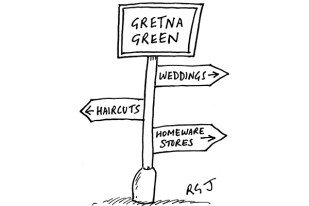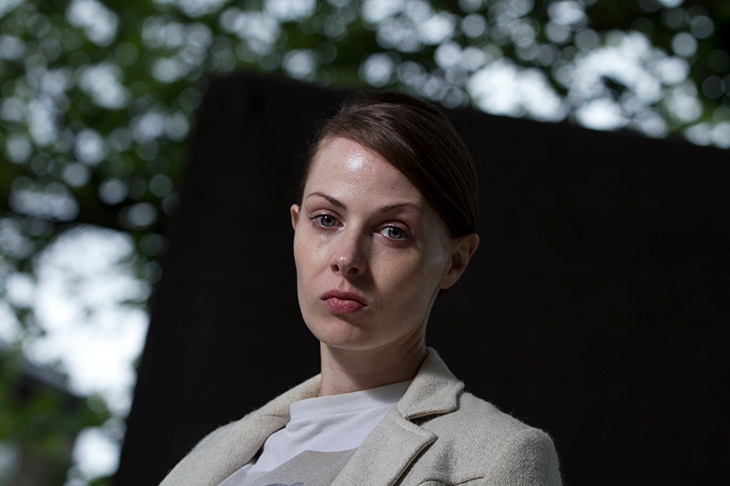Gwendoline Riley’s unsentimental fiction hovers on the edge of comedy and bleakness, and has drawn comparisons from Jean Rhys to Albert Camus. First Love, her fifth novel, put a toxic relationship under the microscope, winning the Geoffrey Faber Memorial Prize in 2017 and being shortlisted for five others, including the Women’s Prize for Fiction. Expanding on one of its strands, her sixth book zeroes in on child/parent dynamics.
In My Phantoms, Bridget, an academic, reflects on her relationship with her late father and mother. Glimpses of her suburban upbringing reveal a mother miserably yet willingly shackled to convention. When Bridget asks Helen why she married the monstrous husband she left seven years later, she’s told: ‘It was just what you did.’ Any questions that fall beyond Helen’s conversational safe zone are stonewalled.

At weekends, Bridget and her sister Michelle endure paternal access visits, scenes of laugh-out-loud tortuousness. Their father inhabits a fantasy world spun around his own exceptionalism. His raison d’être is ‘getting one over’ on others, schadenfreude his meat and drink. If Bridget reads a book, it will be snatched and ridiculed. All in his presence are hostage to the relentless clowning that sustains his chosen role of ‘beloved outlaw’.
In adulthood, Bridget’s interactions with her mother — wearing her ‘expectant look’ of ‘mulish innocence’ — are exercises in frustration of another kind, like putting pennies in a recalcitrant slot machine. Their lunches at the ‘groovy Troub’ (Troubadour) in Earl’s Court become an annual trial. Helen is a woman who gives no advice, only mantras; who cannot say how she is, only what she’s done. She is endlessly hopeful and endlessly disappointed by life: the disastrous second marriage; the dutiful ‘social whirl’; the aggrieved sense of doing all the ‘right things’ to no avail. Bridget invents personal disasters to entertain her, underplays her own happiness to avoid upsetting a mother who feels perpetually excluded. She distances herself; avoids introducing Helen to her partner; lets the lion’s share of the care burden fall to Michelle.
The novel’s pathos derives from its stunted relationships, the vicious cycle of discontentment that continues until Helen’s death. Fear of engaging with others lies at the root of her loneliness and poor choice of husbands, but there’s little hope of changing. Hands clenched defensively, she is unyielding and unreceptive, and Bridget’s efforts to comfort her merely fill ‘a cup with a hole in it’.
Bridget underplays her own happiness to avoid upsetting a mother who feels perpetually excluded
My Phantoms is a distilled psychological tour de force from an exceptional writer. Riley has a mimic’s ear for feeble gags, absurd catchphrases and pretension. Even her punctuation is withering; rarely have exclamation marks looked so desperately cheerful, inverted commas so mocking. From minute, quotidian details — impasses, the unsaid — Riley weaves a painfully funny and acute study of disappointment, self-delusion, unbridgeable fissures and the conflicting forces of loyalty, pity, vexation and guilt. Bridget’s detachment can read uncomfortably, begging the question: how would you treat such a mother?






Comments